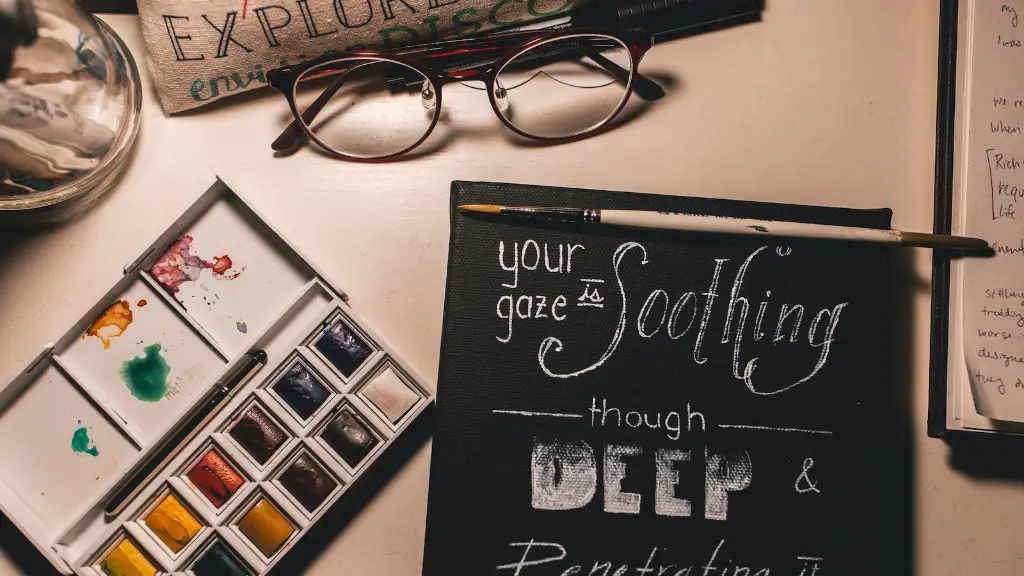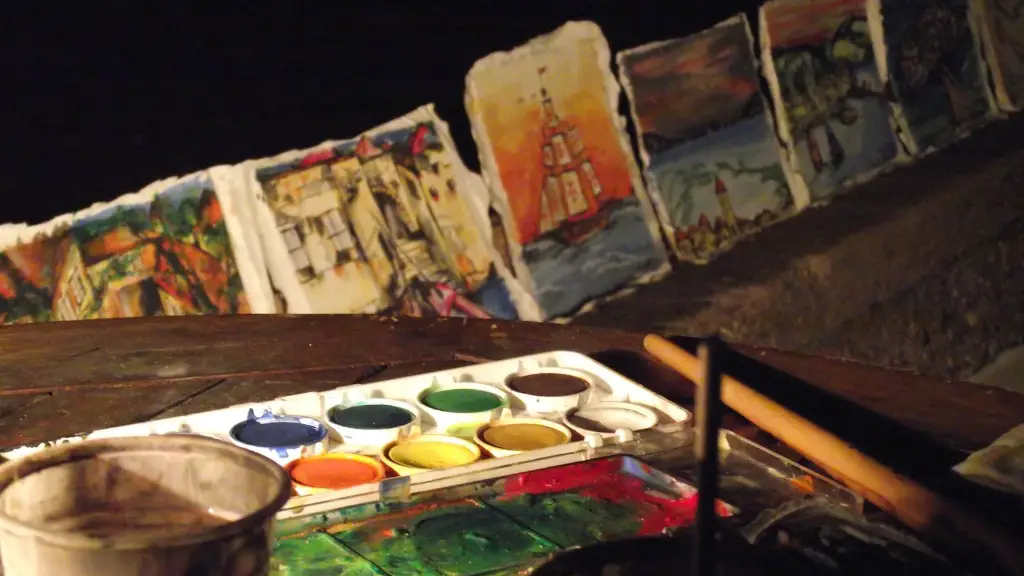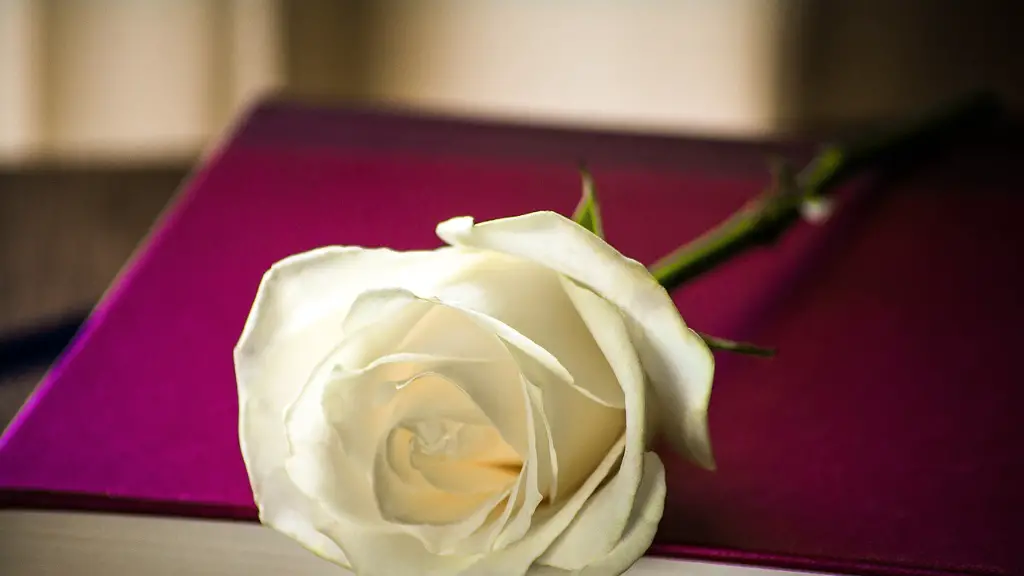Relevance of Writing a Manuscript for Poetry
Writing poetry is a delicate art that requires finesse and a skillful touch. The importance of honing the skills to create an effective and captivating poem cannot be overstated. As such, a strong and well-crafted manuscript is essential in order to develop a sophisticated and polished presentation of a poet’s thoughts and ideas. A quality poem requires continuous refinement, practice and reworking, which is why the process of creating a poetry manuscript should be taken seriously.
Form and Style
Before beginning to write a manuscript, it is important to consider the form and style of the poem. Is the poem to be composed in traditional rhyme and meter, or is it going to be a contemporary free verse composition? Additionally, what is the correct format to be used? A blank verse has a specific set of conventions which must be adhered to in its formatting, and similarly, an appropriate presentation must be chosen for a sonnet.
Know Your Subject
No matter the form, the key to developing a skilled poem is a detailed understanding of the subject matter. Whether the poem is about a distant landscape or just a passing moment, comprehensive research into the area will greatly improve the quality of the poem. There is no substitute for direct experience; observing the rich complexity of a scene can often provide invaluable insight and inspiration.
Emotional Triggers
An effective poem is one which successfully engages and connects with the reader on an emotional level. This is best achieved through the use of strong and powerful imagery, as well as carefully crafted language. With a careful construction of metaphors, similes and juxtapositions, the reader can be taken on an emotional roller coaster; rising and falling with the energy of the words, and fully connecting with the feelings of the poet.
Developing a Voice
A poem’s voice is something that is unique to the poet, and as such it is important to develop and refine this skill throughout the creation of the poem. This can be done through a poetic analysis or self-reflection of existing literature, as well as experimenting with language, imagery and form. As the voice of the poem develops and evolves, the quality of the final piece should also improve.
Word Choice and Structure
When the poem Ls taking shape, it is important to select the right words to fully express the ideas and concepts behind the poem. Each word must be carefully selected with the overall narrative in mind, and every phrase must fit together with seamless consistency. Alliteration, assonance and repetition can be powerful tools which add rhythmic backboning to the poem, and often help bring the reader into the world of the poem, and deepen the emotional effect.
Polishing and Revising
The final and arguably the most important step is the process of revision and polishing. During the revision process, all the minor flaws can be worked out, and the finished poem crafted. Filling in the narrative blanks, adding harmony and balance, and adjusting the emotional impact are all techniques which can be used to bring a poem from draft to masterpiece.
Using Imagery to Evoke Emotion
Imagery is an incredibly powerful tool for a poet and is fundamental to effectively conveying raw emotion in a poem. Each word must be as evocative as possible, in order to create strong and vivid images in the reader’s mind. To do this effectively, adjectives and adverbs can be used. Furthermore, using the correct grammar and stylistic conventions will also ensure the correct atmosphere is created.
Final Draft
Once the editing and revisions have been completed, the thoughtful process of creating a poem should culminate in the production of the final draft. This should be reviewed with a critical eye, as it is only in the delicate weaving of the words together that the poem truly begins to take form. Every minor detail should be examined, and the finished article should be of the highest quality; a representation of the poet’s skill, passion and creativity.
Exploring Other Poetic Structures
The world of poetry is vast, and many eclectic forms exist beyond the conventional contemporary styles. From Haiku to Ekphrasis, there is a complexity and range of structure, and exploring these different alternatives can be a great source of interest, creativity and learning. Taking the time to explore other forms of poetry can be invaluable to the development of a poet’s skill, and can often result in a truly unique and captivating manuscript for the poem.
Exploring Different Genres
A poem does not exist in a vacuum, and its openness to influences from other areas can be an exciting journey. Exploring other genres and literary styles can greatly improve the flow and tone of a poem, and offer a unique perspective. In other words, a poem is an extraordinary creation, and should not be confined to one domain. It can draw from life, books, film, music, and can interweave the beauty of all these elements into a single work of art.
Integrate Perspective and Voice
Once a poem is complete, it is important to review the writing and ensure that the same perspective and voice is used throughout the poem. This is best achieved by rereading the entire piece several times and continuously making adjustments until the piece is in line with the poet’s original intent and desired tone. This can be an interesting, tiring, and often an enlightening process, and the results can be more rewarding than anticipated.
Learning From the Experience
Writing a poem and creating a manuscript can be an educational and enlightening experience. Doing so requires dedication and commitment, and can be a difficult process at times. However, this should be embraced and taken as an opportunity to learn and grow as a writer. From researching subject matter, to developing a unique and meaningful voice, to analyzing existing works, there are many valuable lessons to be learned when creating a poem, and these will no doubt be of great benefit to any aspiring poet.



